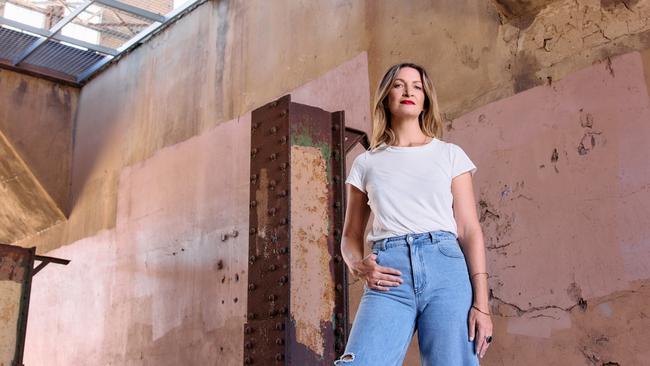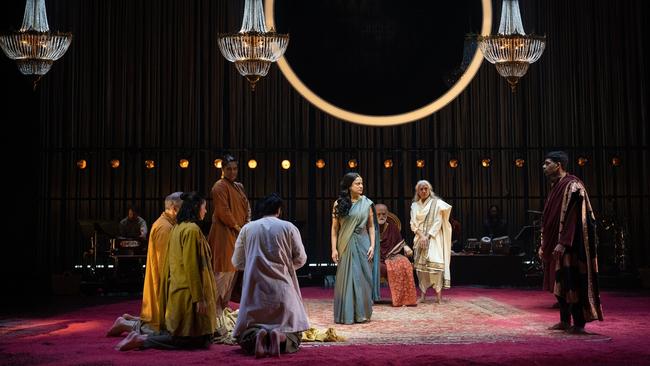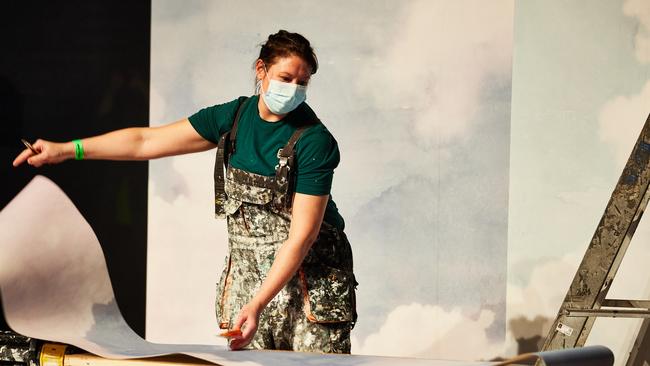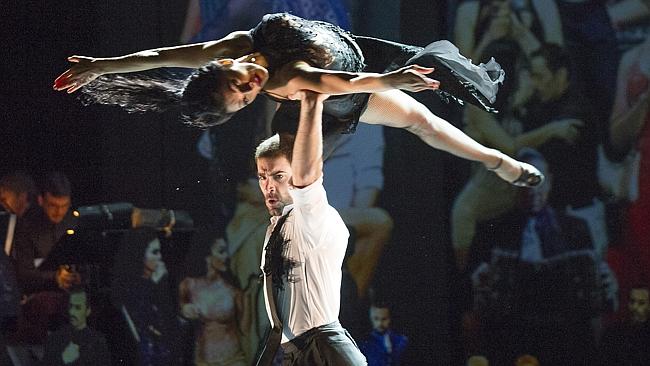‘It goes beyond’: Perth Festival has power house answer to challenges
Perth Festival’s new artistic director Anna Reece is ready to challenge expectations of what such an event is meant to be.

It would appear to be a city in ruins. The resounding chambers of the Perth Concert Hall fallen silent, its cinereous concrete facade and forecourts gated up and left to the weeds as the iconic brutalist monument awaits its $150m renovation.
Behind it, abutting the Derbarl Yerrigan – the Swan River – the site of the long-coveted Aboriginal Cultural Centre remains forsaken, no sod yet turned. A short walk west into the city centre, the ambitious new home of the West Australian Academy of Performing Arts remains a construction site.
And just a few metres beyond, the oft-disparaged Perth Cultural Centre – the broiling concrete meridian connecting the state’s most illustrious cultural institutions (among them the State Library, Art Gallery and Museum) – lies in rubble, as its long-promised $55m reimagination finally begins.
For an incoming artistic director of the state’s most historic and consequential arts festival, all this could be interpreted as an ominous portend. But Anna Reece is as insouciant as she is indomitable, struggling to suppress a mischievous grin.
“True, we currently don’t have a concert hall – we don’t have a cultural centre, so where does this festival go?” she ruminates. “It goes beyond, it opens other doors. I think by continuing to question and to challenge spaces and places and the expectations of what a festival is meant to be … I see that as my role as artistic director.
“Does a festival even belong in a concert hall?” Reece questions soberly. “We have this insane opportunity for the next few years, good or bad, to challenge the norm and evolve and find new relevance. It’s genuinely exciting.”
Reece’s most daring gamble in this, her inaugural year, has been to coax the keys to the derelict East Perth Power Station from the state government. Shuttered and abandoned for nearly 45 years by all but graffiti artists and intrepid urban explorers (and, for a brief moment, WA billionaires Andrew Forrest and Kerry Stokes, whose joint development plans were pulped in early 2023), the complex was arrested in time as Perth transmogrified around it.

With the Swan River bookending one flank, the internal courtyard has more aesthetic synergies with 1990s Berlin than sun-bleached Perth: towering smokestacks stand sentry over the rusted chattels of early 20th-century industry. It is here Reece’s contemporary music program will manifest: including appearances from Peter Garrett, German sonic architect Nils Frahm and UK Afro funk outfit Ibibio Sound Machine.
There is an innate sense that inheriting the reins of the Perth Festival has been coded into Reece’s destiny. The first WA-born artistic director in the festival’s more than seven-decade history, she is of distinguished cultural pedigree: her father, Bob, a prominent historian and mother Lesley a WA literary icon, having founded the Literature Centre in Fremantle.
Reece was reared amid WA’s progressive cultural enclave of Fremantle during the 1980s and ’90s – a spicy olio of immigrants, sailors, artists and radical countercultures, most notorious being the Rajneesh religious sect.
Reece’s early apprenticeship in the arts took her to the margins of the nation in search of what she defines today as “some truth”: working with First Nations artists and witnessing the Howard government’s intervention into Northern Territory Aboriginal communities in the wake of the Little Children are Sacred Report in 2007 – what she describes as an unsettling and transformative experience.
She oversaw significant transformation of the Darwin Festival as its general manager and co-CEO from 2011-14 and also produced main stage shows for both the Sydney and Perth festivals – the latter including the wildly popular Giants spectacle with French auteurs Royal de Luxe in 2015. Reece again decamped to the NT in 2018-19 to produce Bunggul, celebrating the life and work of Gurrumul Yunupingu and Yolngu culture. The production was interrupted by Covid, before a triumphant return to the Darwin Festival in 2022.
In recent years she returned to the Perth Festival as executive producer under Iain Grandage, before being appointed director of the Fremantle Arts Centre, one of the state’s most eminent cultural institutions.
Her return to the Perth Festival follows the five-year tenure of Grandage, a period that saw a significantly greater focus on localised stories and Noongar culture as the world responded to and recalibrated beyond the pandemic. Reece’s program casts the net far beyond WA’s physical frontiers again, inviting an intercultural dialogue between global artistic practitioners and the city traditionally known to its custodians as Boorloo. These include public workshops with Singapore International Festival of the Arts director Natalie Hennedige and the celebrated Moroccan-Belgian choreographer Sidi Larbi Cherkaoui.

Set to a discordant tenor of increasingly global instability and an inimical dynamic between the “artistic” and the “political”, Reece’s program is concerned with the often contrarian nuances innate to the human experience.
This is most explicitly manifested in the five-hour spectacle that is Mahabharata, the 4000-year-old dynastical Indian epic exploring the paradoxical dichotomy between karma and dharma.
Somewhat closer to home, 12 Last Songs turns the lens inward, pulling back the shutters on the lives of everyday Perth citizens in a 12-hour continuous performance, where audiences can come and go as they please – starring anyone from tradesmen to sex workers, medical practitioners to aerial shark spotters. A living portrait of a city, 12 Last Songs – created by UK ensemble Quarantine and directed by its co-founder Richard Gregory – seeks to celebrate the extraordinary in the seemingly ordinary.
“We have the opportunity to understand something complex and profound about place and how people occupy it, as much about what is distinctive or even unique … (and) what connects us,” Gregory explains of the genesis of the production, which has toured the UK, France and Iceland. “It’s both singularly specific and remarkably universal. “(But it) is not always about seeking what we might have in common, but rather acknowledging – or indeed accepting – difference, dissent and antagonisms.”
“To borrow a phrase about democracy from the political theorist Chantal Mouffe, we’re interested in ‘agonistic pluralism’, how we might make those differences visible, negotiate and perhaps alter them,” he says. “(However), at the heart of 12 Last Songs I do indeed find something about hope – that, despite our different experiences and ways of looking at the world, when we gather together [it is ]with some sense of shared purpose.”
Standing in the shadows of the towering steel edifice of the East Perth Power Station, Reece stops to spy through a tiny hole into the belly of the building, where shards of sunlight illuminate motes of dust in dance and fragments of dormant machinery unseen and untouched for four long decades.
“Life is a battle between who we are versus who we say we are,” she says, before turning back toward the river – that will take centre stage in Karla Bidi; a light trail will traverse its entire length. “We have phenomenal stories – you just need to scratch the surface. Unlock them.
Our job is to find them and be a platform for them, to reflect a moment in time – both that comfort and discomfort. Escapism but also the brutal reality. Humans are endlessly curious, and festivals help us to seek out these truths … as well as make a little mischief.”
The Perth Festival runs from Friday until March 2. perthfestival.com.au






To join the conversation, please log in. Don't have an account? Register
Join the conversation, you are commenting as Logout